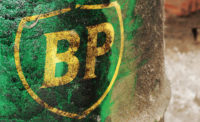The link directly to Peter’s BP piece is:www.psandman.com/articles/deepwater.htm
Public and political attention is increasingly and rightly focused on the inadequacy of BP’s preparedness for a major spill. The main issue isn’t whether BP was less prepared than other companies, but rather whether the whole industry is less prepared than it ought to be.
Risk assessment professionals rightly point out that chronic risk assessment is conservative, even though it may not be as conservative as advocates of the precautionary principle recommend. Because we know how uncertain the risk assessment process is, we ask risk assessors to put their thumbs on the scale, systematically overestimating chronic risks in order to be fairly confident of not underestimating them. A competently done assessment of the risk of cancer from a BP refinery’s stack emissions is almost certainly an overestimate of that risk.
The same is not true of catastrophic risk assessment. Because of what I do for a living, I go to the scenes of a lot of catastrophic accidents. I have gotten into the habit of asking the people managing the technical side of the accident this question: “Show me what just happened on your fault tree.”
It’s virtually never there. Things like it are there, but exactly what happened usually isn’t. On the other hand, a lot of what is there has never happened.
So we know two things about those fault trees: (a) They’re missing a lot of branches; and (b) The numbers at the nodes estimating the probability of going down a particular branch are based on very scanty data.
Bottom line: Catastrophic risk estimates are usually underestimates. “Unknown unknowns” don’t figure in the calculations. Extremely low probabilities are rounded to zero. Hundred-year floods happen every decade or so. Things that have never happened before (and were therefore presumed impossible) happen all the time. There are a lot of black swans out there.
Whether it’s catastrophic oil spills in deeper water than we’re used to drilling or catastrophic economic collapses propelled by derivative investments we only half-understand, the principle is the same: We all — companies, regulators, and the public — underestimate the likelihood of rare catastrophes. And so we face those catastrophes less prepared than we might have been.
On May 3 Peter was interviewed on BBC radio. Go to Peter’s website for links to the full interview. Among the points Peter made:
- BP is doing a “pretty good risk communication job so far.” He gives BP a “B.”
- BP has mostly avoided perhaps the two most common corporate errors in these sorts of crises: minimizing what happened, and scapegoating other organizations that arguably share in the responsibility.
- BP should also be acknowledging other memorable accidents in recent company history (for example, the 2005 Texas City refinery explosion), rather than leaving it to reporters to bring up these precedents.
In addition, Peter summarizes points he would like to have made:
- “BP CEO Tony Hayward comes closer to scapegoating than I like when he insists that the spill wasn’t really BP’s fault, since another company entirely owned and staffed the rig (under contract to BP). I believe this is a true statement, but I think Hayward shouldn’t be stressing it so much. BP did a better job with a 1990 oil spill in Huntington Beach, California. The CEO of BP America at the time declined to hide behind the tanker company most directly responsible for the spill, saying instead something like this: ‘Our lawyers tell us it’s not our fault. But we feel like it’s our fault, and we’re going to act like it’s our fault.’
- ”BP’s elaborate effort to rebrand itself as ‘Beyond Petroleum’ is likely to exacerbate the reputational damage done by the spill. And justifiably so. It set itself up as a green icon. It thus attracted iconoclasts, eager to brand the rebranding as a kind of greenwashing. Now it will reap what it sowed.”




